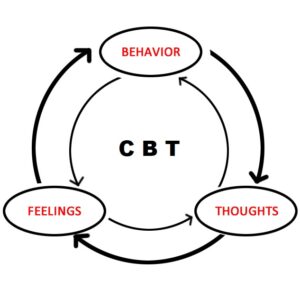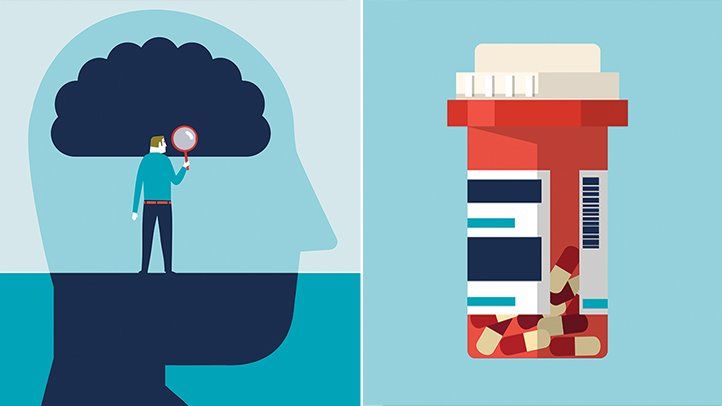PTSD, or post-traumatic stress disorder, is a mental health condition that affects countless individuals worldwide. Whether caused by military combat, physical assault, or natural disasters, the symptoms of PTSD can be debilitating and significantly impact a person’s daily life. While traditional therapies such as psychotherapy and medication have proven effective in managing PTSD symptoms for some patients, there is an emerging treatment on the horizon: biological interventions. In this blog post, we’ll explore what biological treatments are available for those living with PTSD.
Contents
What is PTSD?

PTSD is a serious disorder that can develop after a person is exposed to a traumatic event. Symptoms of PTSD can include flashbacks, nightmares, anxiety, and avoidance of anything that reminds the person of the trauma. PTSD is caused by a combination of biological and psychological factors. Biological factors include genetics and brain chemistry. Psychological factors include exposure to traumatic events and coping with stress.
There is no one-size-fits-all treatment for PTSD, but there are effective treatments available. Treatment options include psychotherapy, medications, and support groups.
What Does ” Biological Treatment” Mean?
Biological treatment refers to medical treatments that use biological or physiological processes to address a condition or illness. It can involve medications, therapies, or interventions that target the underlying biology of a disease or disorder.
In the context of mental health, biological treatments may include medications that target specific neurotransmitters in the brain or therapies that use techniques such as neurostimulation to directly affect brain function. These treatments can be used alone or in combination with other forms of therapy, such as talk therapy or behavioral interventions.
Biological treatments are often based on scientific research that aims to understand the biological mechanisms underlying a particular condition. They are typically prescribed and overseen by medical professionals, such as psychiatrists or neurologists, who have specialized training in the use of these treatments.
Types of Biological Treatment For PTSD
There are several types of biological treatment for PTSD, including:
Medications

Several types of medications are commonly used to treat PTSD, including:
- Selective Serotonin Reuptake Inhibitors (SSRIs): SSRIs are a type of antidepressant medication that can help manage symptoms of anxiety and depression that often accompany PTSD. Examples of SSRIs include fluoxetine (Prozac), sertraline (Zoloft), and paroxetine (Paxil).
- Serotonin-Norepinephrine Reuptake Inhibitors (SNRIs): SNRIs are another type of antidepressant medication that can help manage symptoms of PTSD. Examples of SNRIs include venlafaxine (Effexor) and duloxetine (Cymbalta).
- Benzodiazepines: Benzodiazepines are a type of anti-anxiety medication that can help manage symptoms of anxiety and insomnia that often accompany PTSD. Examples of benzodiazepines include alprazolam (Xanax) and lorazepam (Ativan). However, they can be habit-forming and may lead to dependency.
- Prazosin: Prazosin is a medication that is used to treat high blood pressure, but it has also been shown to be effective in managing nightmares and sleep disturbances in individuals with PTSD.
- Propranolol: Propranolol is a medication that is used to treat high blood pressure and can also help manage symptoms of anxiety that often accompany PTSD. It has also been shown to be effective in reducing the emotional intensity of traumatic memories.
Cognitive Behavioral Therapy (CBT)

Cognitive Behavioral Therapy (CBT) is a type of psychological treatment that is based on the idea that the way we think and interpret events in our lives affects how we feel and behave. CBT is a short-term, goal-oriented therapy that focuses on changing negative thought patterns and behaviors to improve mental health and well-being.
In CBT, clients work with a therapist to identify and challenge negative or distorted thinking patterns, such as all-or-nothing thinking or catastrophizing. Clients learn to replace these negative thoughts with more realistic and positive ones, which can help improve mood and reduce anxiety.
CBT also involves behavioral strategies, such as exposure therapy, which involves gradually exposing clients to feared situations or objects in a safe and controlled environment. This can help clients learn to manage their anxiety and overcome their fears.
Neurofeedback
Neurofeedback is a type of biofeedback therapy that uses real-time measurements of brain activity to train individuals to regulate their brain function. It involves placing sensors on the scalp to detect brain waves, which are then displayed on a computer screen as visual or auditory feedback.
During a neurofeedback session, the client is trained to modify their brain activity in a specific way, such as increasing activity in certain areas or decreasing activity in others. For example, someone with ADHD may be trained to increase activity in the prefrontal cortex, which is responsible for executive function and attention.
Over time, with repeated sessions, the brain learns to regulate its activity more effectively, leading to improved functioning and symptoms.
Eye Movement Desensitization and Reprocessing
Eye Movement Desensitization and Reprocessing (EMDR) is a type of therapy that was developed in the late 1980s to help people overcome the symptoms of trauma and other negative life experiences. EMDR is based on the idea that trauma can create negative beliefs or “stuck” emotions that can be processed and resolved through eye movements or other forms of bilateral stimulation.
During an EMDR session, the therapist guides the client through a series of eye movements or other forms of bilateral stimulation, while the client focuses on a traumatic memory or negative belief. The goal is to help the client process the memory and emotions associated with it and to develop more adaptive beliefs and behaviors.
Transcranial Magnetic Stimulation (TMS)
Transcranial Magnetic Stimulation (TMS) is a non-invasive brain stimulation technique that uses magnetic fields to stimulate nerve cells in the brain. TMS is typically used as a treatment for depression when other treatments, such as medication and psychotherapy, have not been effective.
During a TMS session, the patient sits in a chair while a magnetic coil is placed near their scalp. The magnetic fields produced by the coil pass through the scalp and skull and into the brain, where they stimulate nerve cells in the prefrontal cortex, an area of the brain that is involved in mood regulation.
TMS is believed to work by increasing the activity of nerve cells in the prefrontal cortex, which can help to improve mood and reduce symptoms of depression. Also, TMS is typically administered in daily sessions over several weeks.
TMS is generally considered safe, with few side effects. The most common side effect is mild to moderate scalp discomfort or headache. While TMS is effective for some people with depression, it is not effective for everyone, and the optimal course of treatment may vary from person to person.
Pros of Biological Treatment for PTSD

- Effectiveness: Biological treatments, such as medications and therapies, are effective in managing the symptoms of PTSD in many cases. They can help reduce symptoms such as anxiety, depression, and sleep problems, and improve the overall quality of life.
- Accessibility: Biological treatments for PTSD are widely available and can be prescribed by a variety of healthcare professionals, including psychiatrists, primary care physicians, and nurse practitioners. This makes them more accessible to individuals who may not have access to specialized mental health services.
- Evidence-based: Biological treatments are typically based on scientific research and clinical trials, which can provide a strong evidence base for their effectiveness and safety.
Cons of Biological Treatment for PTSD

- Side effects: Like any medication or medical treatment, biological treatments for PTSD can have side effects, such as nausea, dizziness, or weight gain. Some individuals may also experience more severe side effects, such as seizures or allergic reactions.
- Dependency: Some medications used to treat PTSD, such as benzodiazepines, can be habit-forming and lead to dependency. This can create challenges when trying to discontinue or reduce the use of the medication.
- Limited impact: Biological treatments may only address the symptoms of PTSD, rather than the underlying causes. While they can be effective in managing symptoms, they may not fully resolve the psychological and emotional impacts of trauma.
- Cost: Biological treatments for PTSD can be expensive, particularly if an individual does not have insurance coverage or if the treatment is not covered by their insurance plan.
It is important to note that the decision to use biological treatment for PTSD should be made in consultation with a qualified healthcare professional, who can help assess the risks and benefits of different treatment options.
Conclusion
Biological treatments for PTSD are becoming increasingly popular as more and more research is done on the subject. We have discussed several of these treatments, including antipsychotic medications, hormone therapy, and exposure therapy. While many of these treatments involve managing symptoms rather than curing the disorder itself, they can still be effective in reducing or eliminating some of the most disabling symptoms associated with PTSD while improving the overall quality of life.
It’s important to work alongside a mental health professional when considering biological treatments for PTSD to make sure that you receive appropriate care tailored to your specific needs.
For more information, please contact MantraCare. PTSD or Post-Traumatic Stress Disorder is a mental health condition that affects people who have experienced or witnessed a traumatic event. If you have any queries regarding Online PTSD Counseling experienced therapists at MantraCare can help: Book a trial PTSD therapy session


